
Synonymes : chef de bord, pilote
- Transport - Logistique
- Ajouter aux favoris

Description métier
Le skipper professionnel assure tout d’abord le transport payant de passagers vers une destination fixée d’avance. Il peut également assurer le convoyage d’un voilier pour le compte d’un tiers propriétaire, locataire ou emprunteur du navire . Dans ce cas, il doit respecter le trajet et la destination établis par contrat.
Lors du transport, les passagers ont la possibilité de participer ou non à la manœuvre et à la conduite du navire . Si c'est le cas, le skipper doit veiller au respect des règles de sécurité.
Le skipper maîtrise parfaitement le droit maritime , la technologie et le matériel du navire et toutes les règles de navigation : abordage, balisage, signalisation…Il doit également avoir de solides connaissances en maintenance et en réparation car il doit être à même d'assurer les interventions de base sur son navire.
Pendant la saison touristique, il travaille le plus souvent au service d’organismes de vacances ou de loueurs de voiliers et emmène des estivants en croisière . Hors saison, il est souvent employé pour le convoyage de bateaux de particuliers, notamment vers les Caraïbes ou les Antilles.
Sens des responsabilités, sang-froid et grande résistance à la fatigue physique et nerveuse sont des qualités indispensables pour exercer ce métier.
Études / Formation pour devenir Skipper
En tant que professionnel de la voile , le skipper est le plus souvent déjà titulaire du BPJEPS activités nautiques, voire du DEJEPS. Renseignements auprès des Délégations académiques à la jeunesse, à l'engagement et aux sports ( DRAJES )
Pour devenir skipper professionnel , il faut obligatoirement être titulaire du brevet de capitaine de 200 voile de niveau bac. Ce diplôme est délivré par les Dirm (Directions interrégionales de la Mer) et peut se préparer en lycée maritime.
Enfin, le CAP réparation, entretien des embarcations de plaisance et le bac pro maintenance nautique sont des plus.
À savoir : au-delà de 30 passagers, le skipper ne peut piloter que des voiliers d’une longueur inférieure à 25 mètres. Il n'y a pas de limitation de longueur si les passagers sont moins de 30.
Le skipper est recruté sur contrat de transport de passagers ou sur contrat de convoyage par des organismes ou des particuliers.
Sa rémunération dépend de la destination, de la durée du trajet, de la taille du voilier, du nombre de passagers (entre 200 € et 350 € environ par jour pour un convoyage) et de la difficulté de navigation.
Evolutions de carrière
Après quelques années d’expérience professionnelle, un skipper peut prendre la responsabilité d’une entreprise de vente ou de location de navires de plaisance.
Il peut aussi devenir chef de base nautique ou se diriger vers l’enseignement et la formation, à condition d’obtenir les diplômes correspondants.
Josée Lesparre © CIDJ - 14/06/2022
Josée Lesparre © CIDJ - 14/06/202204/2024
Crédit photo : Epic Stock Media - Fotolia
FFV - Fédération française de voile
Métiers liés
- Loueur / Loueuse de bateaux
- Moniteur / Monitrice de voile
- Marin de commerce
- Batelier / Marinier
- Directeur / Directrice d'équipements de loisirs et sportifs
- Marin pêcheur
- Maître-nageur sauveteur / Maître-nageuse sauveteuse
- Officier de marine marchande
- Moniteur / Monitrice de permis bateau de plaisance
Centres d'intérêts
- Se déplacer souvent, voyager
Vous êtes à la recherche d'un stage étudiant en entreprise, d'un stage de fin d'études ? Le CIDJ vous propose des offres de stages conventionnés dans toute la France et dans tous les secteurs... Stages en entreprise sélectionnés pour vous par le CIDJ.

- Alternance / Apprentissage
- Choisir sa ville pour étudier
- Classements
- Fiches métiers
- Orientation / Réorientation
- Spécialités
Métier Skipper : missions, formations et salaire

Le métier de skipper est une profession passionnante qui allie navigation et aventure. Découvrez tout ce qu’il faut savoir sur le métier de skipper dans cet article : ses missions, les compétences requises, sa formation, les débouchés du métier, ainsi que son salaire.
Quel est le rôle d'un skipper sur un bateau ?
Le skipper s'occupe du convoyage de bateaux pour le compte d'un tiers ou du transport de passagers pendant la saison touristique . Il est le chef de bord du navire et à ce titre doit assurer la sécurité de l'équipage, l'approvisionnement en nourriture et l'entretien du navire.
Pour mener à bien sa mission, le skipper analyse les données météorologiques afin de déterminer les itinéraires . Il donne les directives lors des manœuvres de voile et forme l'équipage. Sur les navires de plaisance, le skipper s'occupe également du divertissement et du bien-être des passagers .
Compétences et qualités d'un skipper professionnel
Ce métier requiert une connaissance précise de la navigation et une capacité à manœuvrer habilement les bateaux, même dans des conditions difficiles ainsi qu'un grand sens des responsabilités. Le skipper doit donc posséder les qualités suivantes :
- Une excellente connaissance de la navigation et de la météorologie
- Une bonne compréhension du droit maritime et des règles de navigation
- Des compétences en maintenance et réparation de bateaux
- Des compétences en leadership pour interagir avec l'équipage ou les passagers d'un navire de plaisance
- Du sang-froid afin de gérer les situations d'urgence
Comment devenir skipper ? Quelle formation, quel diplôme et quel permis sont requis ?
Il n'existe pas de diplôme de skipper à proprement parler mais pour mener un voilier de plaisance dans un cadre réglementé il est obligatoire d'obtenir au minimum le brevet de capitaine 200 .
Après 12 mois de navigation effective, le skipper peut ensuite passer le brevet de capitaine 500 , puis le brevet de capitaine 3000 s'il veut prendre les commandes de vaisseaux plus importants.
Afin de diversifier son activité, le skipper a également la possibilité de passer le permis pour navire de plaisance à moteur .
Les diplômes tels que le BNSSA (Brevet National de Sécurité et de Sauvetage Aquatique) ou le BPJEPS (Brevet Professionnel de la Jeunesse, de l'Éducation Populaire et du Sport) option plaisance peuvent être utiles pour les skippers professionnels.
A ne pas manquer ! Studyrama vous propose un événement d'orientation digital inédit autour des Métiers de la Mer ! RDV le 17 octobre de 16h à 20h pour échanger avec des spécialistes de cette thématique et assister à de nombreuses conférences live. Vous pourrez ainsi trouver toutes les réponses à vos questions, de chez vous !
Débouchés du métier de skipper
Les débouchés du métier dépendent de la formation acquise au fil du temps et des envies du skipper. Un skipper peut travailler pour une compagnie de voyage de plaisance, pour une compagnie de croisière ou pour le propriétaire d'un bateau. D'autres skippers professionnels naviguent lors de régates comme la Route du Rhum ou le Vendée Globe, pour le compte d'un sponsor.
Son évolution professionnelle
Les skippers expérimentés peuvent évoluer dans leur carrière de différentes manières , notamment en devenant capitaine de navire de plus grande envergure, en travaillant pour des compagnies maritimes commerciales, en devenant instructeurs de voile ou en lançant leur propre entreprise de charte nautique (transport de passagers).
Certains peuvent également choisir de devenir experts en navigation et conseillers pour l'industrie maritime.
Quel est le salaire moyen d'un skipper ?
Les revenus d'un skipper professionnel varient considérablement en fonction de l'expérience, de la taille du navire et du type de missions.
Le salaire mensuel moyen d'un skipper fluctue, surtout pour l'activité de plaisance qui est essentiellement saisonnière et dont la rémunération repose en partie sur les pourboires : il faut compter entre 250 à 350 euros par jour pour une croisière mais les skippers expérimentés travaillant sur des yachts de luxe peuvent obtenir un salaire plus important.
Le tarif d'un convoyage de bateau à vide est fixé selon la distance parcourue, de 3€ à 3,50€ par mille nautique (1,852 km).
Les salons pour bien s’orienter
> Les salons près de chez vous
Librairie Studyrama
L'encyclopédie des métiers.

Il n'est jamais facile de choisir son futur métier. Comment concilier ses envies et son orientation ? Quels seront les besoins de demain ? Quelle est la meilleure formation à suivre ? Destiné autant aux parents qu'aux enfants, cet ouvrage vous guide à travers tous les secteurs d'activité afin de vous renseigner sur la réalité de 750 métiers connus ou à découvrir.
> Retrouvez tous nos guides métiers sur la librairie Studyrama
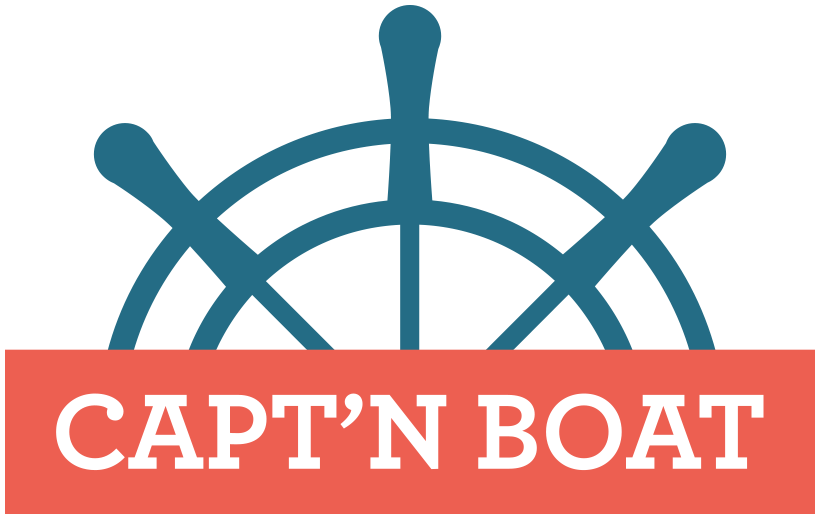
Becoming a skipper: qualifications, trainings, remuneration ..
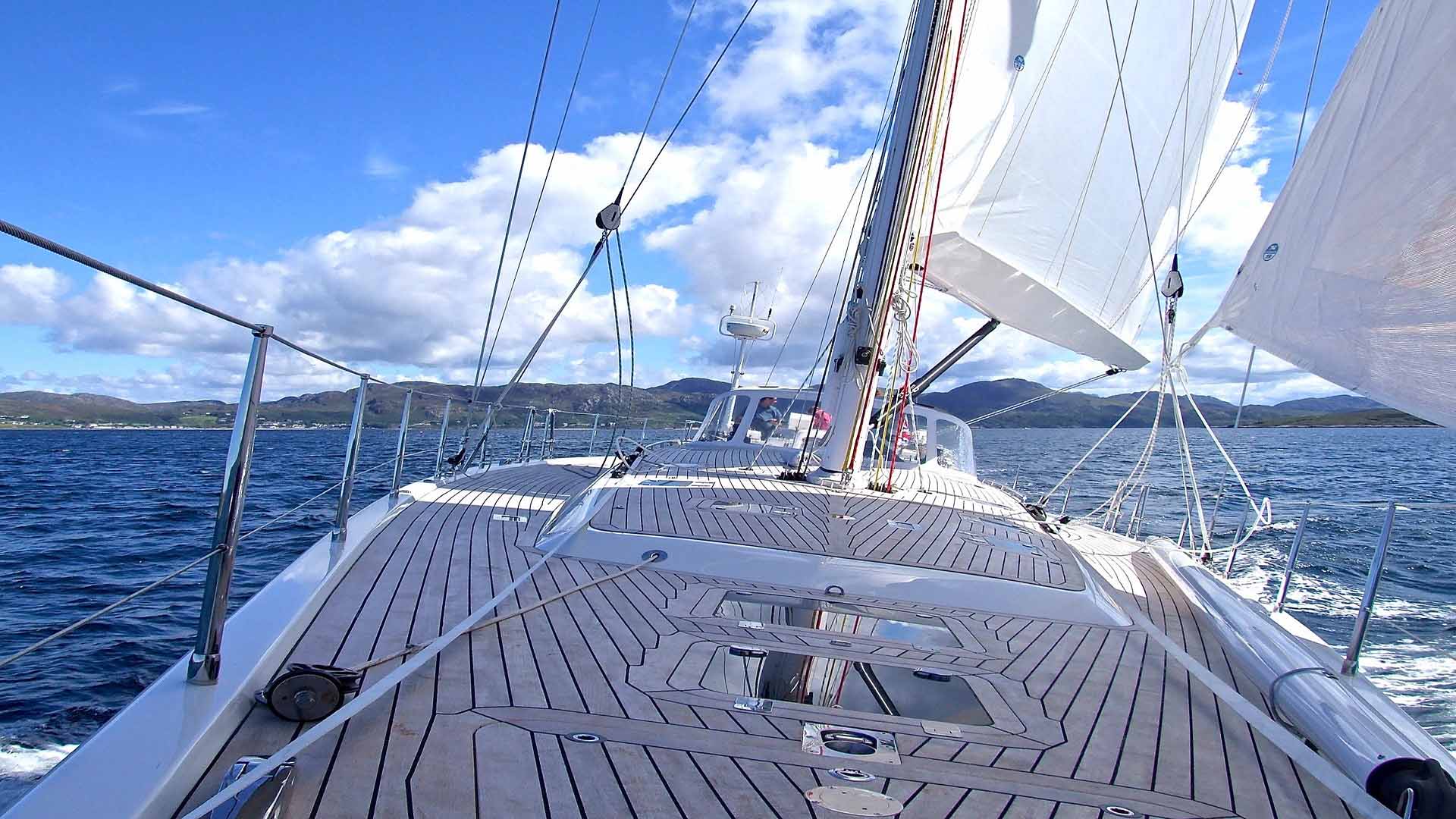
In a global context where the figures of the nautical sector are rather positive, the demand for skippers is growing every year. Becoming a skipper is a real passion coupled with a solid training. Capt’n Boat explains the role of a professional skipper, his trainings, his missions and his remuneration system.
A skipper is the person in charge of the navigation of a boat . He provides paid passenger transport (charter) as well as delivery (boat delivery) of pleasure boats from one port to another, he offers training services (sailing course) and improvement, or he sails a sailboat in sporting competitions (races).
1. What is a skipper?
The skipper is the only master on board . Thus, he is responsible for all the tasks and actions necessary on the boat:
- Driving the engines and electrical installations
- Relations between the crew and the client
- Safety and security of the passengers and the ship
- Management of the crew
- Hygiene on board and health of passengers
- Maintenance and repair of the vessel
- Radio communications
The skipper also plays an important role in the animation of life on board.

2. What are the missions of a skipper ?
The missions of a skipper are quite varied. A skipper works most often for vacation organizations, boat rental companies and takes summer guests on cruises. During the off season, he or she is more often employed to deliver private boats.
A. Boat deliveries
The mission of delivery consists, for a professional skipper, to convey a ship for a remuneration, between two ports or two sites by sea.
Generally, it is about :
- Driving boats to a shipyard for maintenance or wintering
- Routing boats to a race start
- Conveying boats to the home port following a purchase
B. Boat coaching
The improvement or coaching is an educational mission. The skipper’s objective is to teach the fundamentals of navigation and the use of a boat.
The services of a skipper are generally requested to:
- Train an owner following a boat purchase
- Propose improvement courses to owners in order to be more comfortable on their boat
C. Cruise with a skipper
Going on a cruise with a skipper is a good compromise to enjoy both the navigation and the sea air without being embarrassed by maneuvers, anchorages…
We also talk about doing charter missions with clients.
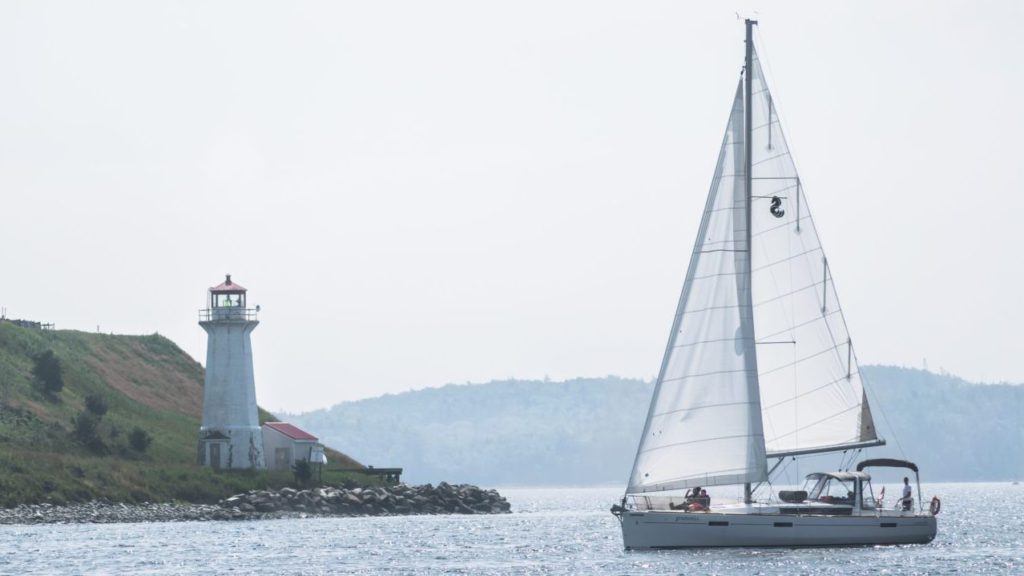
3. Which training to become a skipper?
A. internationally.
The most common certificate to work internationally as a skipper is the Yachtmaster . The Yachtmaster is an English degree from the Royal Yachting Association (RYA), recognized by the Maritime Coastguard Agency (MCA) and throughout the world. It allows skippers to command pleasure boats up to 24 meters long, and up to 200 miles from the coast. It has 3 levels and each one have limitations: Coastal, Offshore and Ocean.
To obtain the Yachtmaster, the candidate must be over 18 and have at least 1000 miles of navigation in 1st or 2nd category (corresponding to the distance from the coast). The theoretical tests cover a wide range of subjects such as:
- The ship and its components (technical, engine, electrical installations)
- Navigation in all its states (coastal and offshore, day and night)
- Maritime law relating to events at sea
- Meteorology and hydrology
- Sanitary conditions on board
The practical test takes place during a 12-hour navigation. It includes a night phase, a man overboard exercise as well as port maneuvers.
The Yachtmaster must be completed with a “Commercially Endorsed” endorsement in order to be used on commercial services for profit. To obtain this endorsement, the skipper must obtain the Professional Practices and Responsibilities certificate (PPR), the Basic Safety Training (BST), and the MCA Medical Examination (ENG1).
B. In France
In France, there are 2 main types of skipper certificates:
- The Merchant Navy certificates (Captain 200, Captain 500, Captain 3000…) for fishing and trade. Merchant Navy diplomas are authorized for boat deliveries and charters.
A Captain 200 Voile certificate is compulsory to work as a professional skipper in France. This certificate allows you to work as a professional skipper in yachting and sailing, either to carry passengers (12 maximum) on ships of less than 200 tons (about 24 m), or to drive a ship for a third party.
In order for the Captain 200 to be effective, you must also hold the BST, ROC/GOC, EM1 and a Medical Checkup .
- The State Certificates (BPJEPS, BEES ..), are qualified to carry out only training.
C. Yachtmaster or french title?
There is no one title better than another. It all depends on what type of vessel you want to work on.
If you want to work on French flagged vessels, Capt’n Boat recommends that you opt for the French titles. Otherwise, the Yachtmaster titles are a good option if you want to work on foreign flags.
There is now a gateway to work on a French flag with a Yachtmaster : the Master 200 GT.
4. Qualifications and obligations of the skipper
A skipper’s ability to make decisions, sense of responsibility, interpersonal skills, dynamism, initiative, composure and great resistance to physical and nervous fatigue are essential qualities for a skipper. The journeys can be long and the customers demanding, a skipper must therefore be able to adapt his behavior to each situation and people, he must be versatile, available and autonomous.
In any case, being a skipper is a “passion job” that requires a lot of investment. The human element is an essential part of this job, especially for charter services.
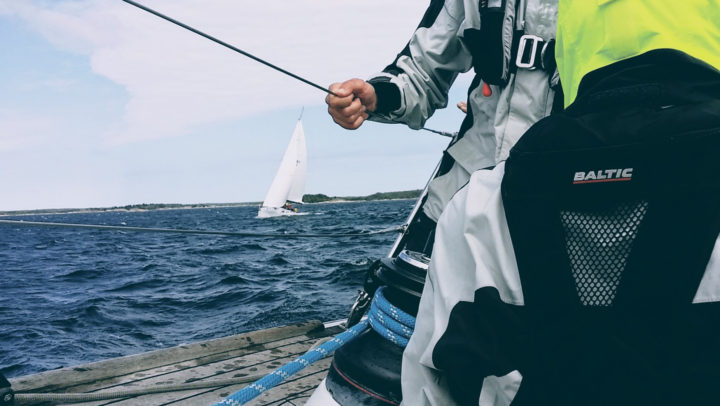
5. Remuneration of the skipper
The cost of a professional skipper varies according to the service (boat delivery, charter, coaching), the duration of the service, the sailing area, the size of the boat and the number of passengers :
- For charters, the remuneration is a daily rate. Example : In Croatia, a skipper is paid at least 240€/day ; In France, 300€/day ; In Saint Marteen, 250€/day ; In Greece, 240€/day ; In the Bahamas, 350€/day ; etc ..
The price varies according to the geographical area, each country has its own minimum wage.
- For boat deliveries, the remuneration is per nautical mile. Here, the wage is the same internationally : 3,5€ per nautical mile.
Want to become a skipper? Capt’n Boat offers you a professional marketplace
Here is a similar article: How to become a yacht stewardess: The fundamentals of the job 👈

Related Posts
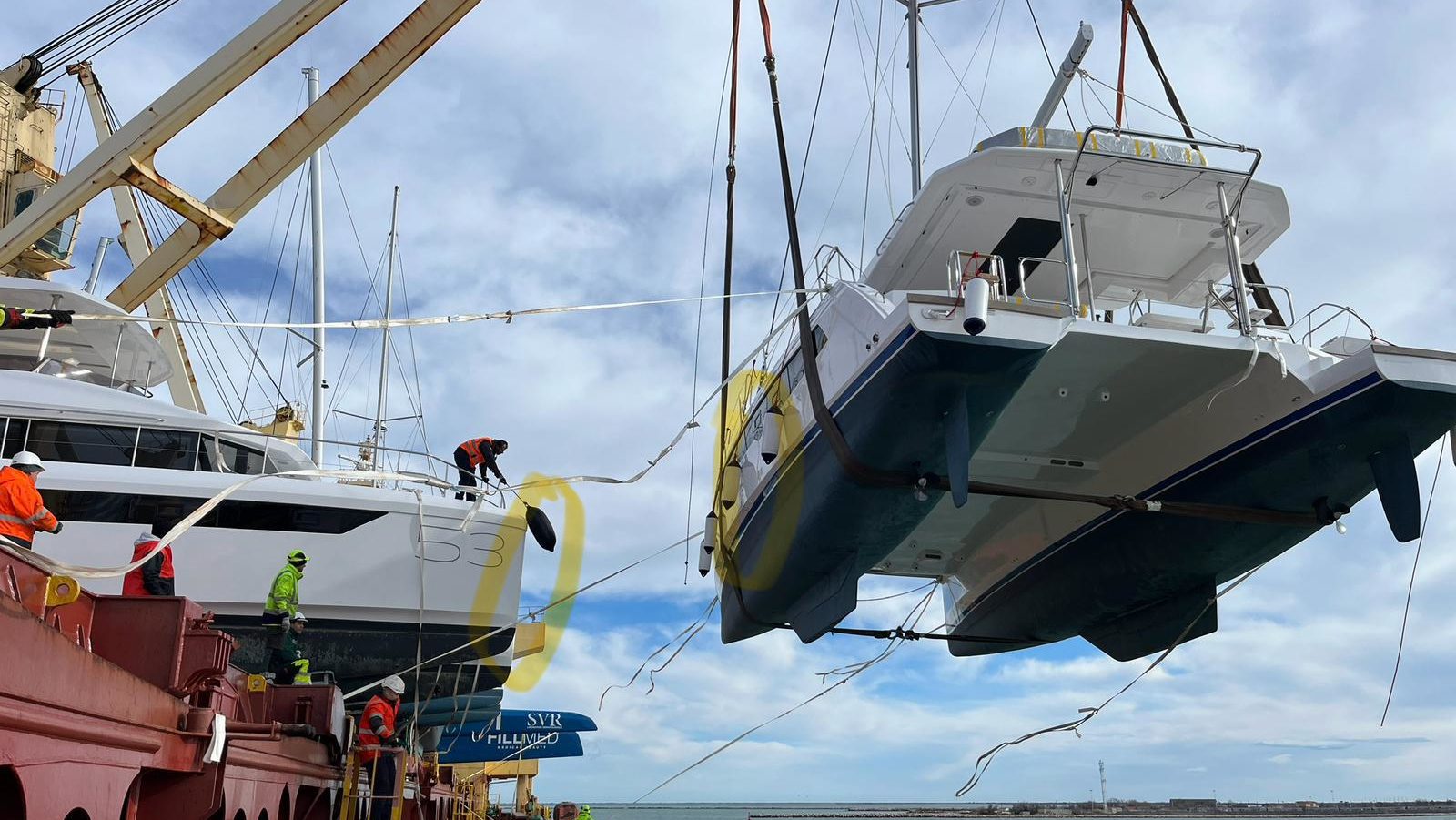
Embark on the convoying of a Leopard Catamarans fleet
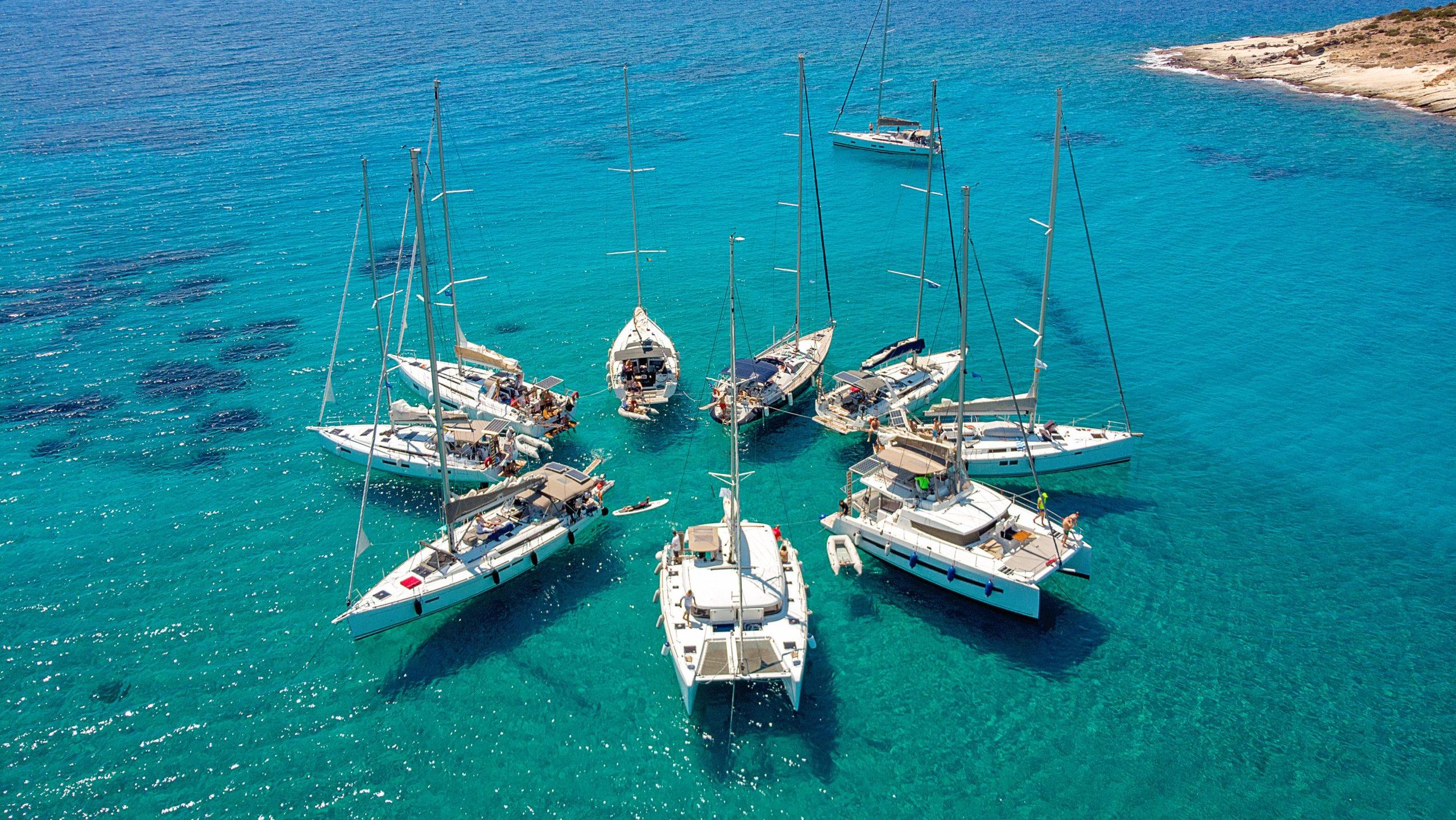
100% growth in 2023 for the 3rd consecutive year – Capt’n Boat makes the review
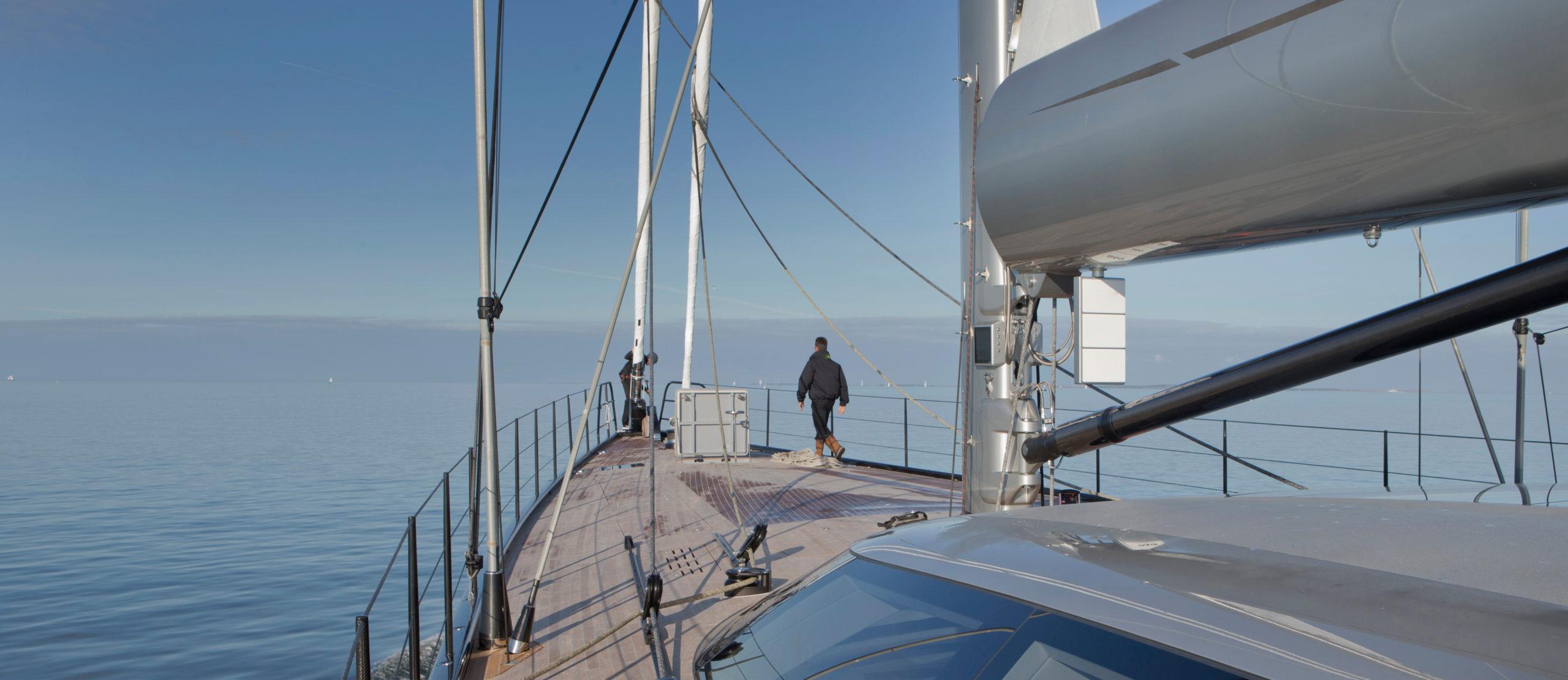
Skipper Jobs: How to find Capt’n Boat missions easily
Fiche Métier Skipper : Salaire, Formation, Rôle et Compétence
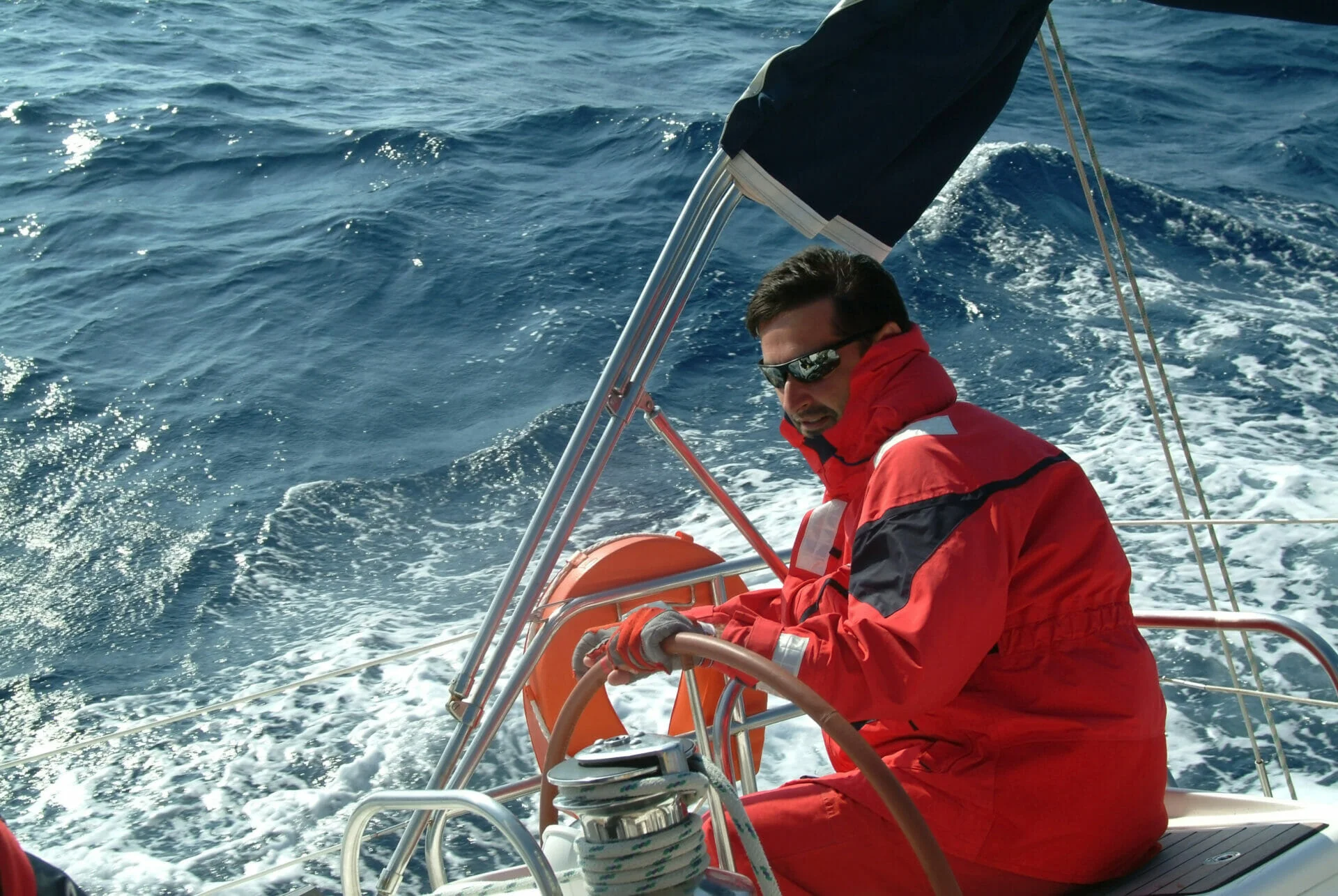
Salaire Moyen brut par an
Niveau d’étude
Top 5 compétences
- FirstHeading
- Quelles compétences doit avoir un Skipper ?Pour être un skipper expérimenté, vous avez besoin d'une formation et d'une expérience considérables. Il est impératif de posséder un diplôme officiel de capacité de commandement en mer, et d'avoir une formation spécifique, à la fois académique et pratique, pour naviguer en toute sécurité sur des bateaux. Les candidats doivent également avoir une bonne connaissance des réglementations de sécurité et de navigation, des systèmes de bord et des procédures de secours. La capacité de piloter et de naviguer un bateau et de prendre des décisions rapides sont des compétences essentielles pour le métier. La gestion des équipages et la capacité à communiquer et à motiver une équipe sont d'autres compétences indispensables. Les skippers expérimentés possèdent une connaissance approfondie de la météo et des lois et règlements de la navigation. Un bon skipper devra également être capable de résoudre des problèmes et de prendre des décisions sous pression, et de gérer les situations d'urgence, telles que les avaries et les accidents. Enfin, un bon skipper devra être passionné par la navigation et le milieu marin, et être capable de communiquer cette passion à son équipage et à ses passagers.Comment devenir Skipper ?Pour devenir un Skipper professionnel, un voyage complexe attend le candidat. Une certification, une formation spécifique, des années d'expérience et une passion pour le milieu maritime sont les principales clés pour profiter à plein de la pratique.Les skippers qui aspirent à acquérir une certification professionnelle devront commencer par obtenir un certificat de navigant, un cours de quelques jours qui donne une excellente connaissance de la navigation et des règles de sécurité à respecter à bord. Après avoir obtenu le certificat de navigant, des cours approfondis de navigation côtière et de grande croisière sont indispensables pour apprendre à utiliser les instruments et à naviguer dans les conditions les plus variées.En outre, le Skipper doit acquérir une expérience considérable pour apprendre à mener à bien sa mission avec succès. Il s'agit en effet de l'un des métiers les plus exigeants. Celui qui veut se lancer dans cette profession doit donc être prêt à apprendre, à faire preuve de flexibilité et à prendre des décisions intelligentes en toutes circonstances. Il doit également avoir le sens de l'observation, une bonne capacité d'analyse et une excellente connaissance des conditions météorologiques et de la navigation.Enfin, il est essentiel de s'engager dans une progression de carrière afin de pouvoir en tirer les meilleures opportunités. Le Skipper doit être capable de prendre des responsabilités et de montrer sa compétence. Grâce aux technologies modernes, les skippers peuvent se mettre à jour et bénéficier des innovations technologiques les plus récentes pour exceller dans leur travail.Le métier de Skipper est passionnant et très enrichissant. Avec des connaissances solides et des années d'expérience, les skippers ont la possibilité de mener à bien leurs missions et de profiter des merveilleux paysages marins.Pourquoi faire appel à un Skipper ?Les skippers sont des professionnels de la mer qui possèdent une expertise approfondie des bateaux, des mers et des conditions météorologiques. Ils sont la meilleure option pour naviguer en toute sécurité et profiter pleinement de votre voyage sur l'eau. La sécurité des navires, des passagers et de l'équipage est une priorité absolue pour les skippers. Ils sont formés pour diriger les bateaux avec compétence, prendre des décisions en fonction des conditions météorologiques, et tenir compte des dangers potentiels et des circonstances changeantes. Les skippers sont parfaitement à l'aise pour s'adapter à tout type de situation et offrir une expérience de navigation en toute sécurité.Les skippers sont des membres importants de l'équipage et leurs connaissances et leur expérience sont précieuses. Ils sont en mesure de conseiller et d'enseigner aux membres de l'équipage, et de les guider pour développer leurs compétences nautiques. De plus, les skippers sont spécialement formés pour s'occuper de tous les aspects pratiques du voyage, tels que le traitement des problèmes techniques, la préparation de la navigation et la gestion des documents nécessaires. Les skippers peuvent également partager leur passion pour la navigation et contribuer à la joie de voyager en mer.Faire appel à un skipper est la meilleure solution pour naviguer en toute sécurité et profiter pleinement de votre voyage. Les skippers sont des professionnels expérimentés et formés pour naviguer en toute sécurité et pour offrir une expérience de navigation enrichissante. Ils sont à l'écoute et ont un profond respect pour l'environnement marin et pour les personnes qui voyagent avec eux.Quels sont les avantages d'être un Skipper ?Opportunités d'explorer des destinations exceptionnelles et exotiques à travers le monde.La possibilité de vivre et de travailler dans des lieux magnifiques et idylliques.Travail flexible avec la possibilité de planifier ses propres horaires.Salaire intéressant pour ceux qui s'investissent bien dans leur travail.Bon équilibre entre vie professionnelle et vie personnelle.Quels sont les inconvénients d'être un Skipper ?Risque accru d'accidents et de blessuresLongues heures et contraintes horairesTravail difficile et physiqueLimitation des temps de repos et de congésDifficultés à maintenir un équilibre entre vie professionnelle et personnelleCombien gagne un Skipper ?Le métier de Skipper est devenu très populaire en France ces dernières années, et cela pour de bonnes raisons. Les avantages de la profession sont multiples : le salaire moyen est compétitif et la profession offre des avantages sociaux considérables, y compris la possibilité de connaître les plus belles destinations françaises et étrangères. De plus, le domaine offre de nombreuses possibilités d'avancement de carrière et l'occasion de travailler avec des personnes hautement qualifiées.Le salaire moyen d'un Skipper en France dépend de son expérience et de sa formation. Les marins professionnels expérimentés peuvent gagner environ 50 000€ par an, tandis que les jeunes marins débutants commencent généralement à un salaire net mensuel de 2 500 à 3 000€.Le métier de Skipper offre également de nombreux avantages sociaux. Les navigateurs peuvent bénéficier de nombreux congés annuels, de voyages rémunérés et d'une couverture complète des frais médicaux et dentaires. De plus, la fonction indépendante et internationale offre aux marins la possibilité de travailler dans un environnement stimulant et de vivre des expériences intéressantes.Les skippers peuvent également progresser professionnellement grâce à des formations professionnelles et des certificats. En France, les capitaines peuvent obtenir des diplômes dans des domaines tels que la gestion de bateaux, le pilotage et la navigation. Les qualifications peuvent ouvrir de nouvelles opportunités de carrière, telles que la conduite de bateaux de plus grande taille ou l'obtention d'un poste plus important.Les Skippers en France peuvent bénéficier d'une variété d'avantages. La possibilité de parcourir des destinations exotiques, de connaître des cultures nouvelles et de profiter des avantages sociaux et d'une progression de carrière fait du métier un métier très populaire et attractif.Conclusion
Le métier de Skipper consiste à naviguer et à piloter des voiliers à travers les océans et les mers du monde entier. Cette profession demande des aptitudes techniques fortes et une vaste expérience en navigation, en météorologie et en sécurité maritime. Les skippers sont des professionnels qui connaissent le fonctionnement des voiliers, leur entretien et leurs technologies modernes. Ils doivent également savoir gérer le personnel embarqué et assurer des navigations sûres et sécurisées.
Le Skipper est la personne qui prend les décisions sur le navire et qui est responsable de la sécurité et du bien-être des passagers et de l’équipage. Les skippers professionnels doivent être préparés à affronter toutes sortes de conditions météorologiques et à prendre des décisions complexes et délicates en temps réel. Les skippers doivent également être familiers avec la réglementation maritime et les procédures en cas d’urgence.
L’objectif de cette fiche métier est de comprendre les enjeux du métier de Skipper et de donner aux lecteurs une idée de la formation et de l’expérience nécessaires pour devenir un skipper professionnel. En outre, cette fiche fournira un aperçu des responsabilités et des fonctions du Skipper ainsi que des conditions et des exigences de ce métier.
Quelles compétences doit avoir un Skipper ?
Pour être un skipper expérimenté, vous avez besoin d’une formation et d’une expérience considérables. Il est impératif de posséder un diplôme officiel de capacité de commandement en mer, et d’avoir une formation spécifique, à la fois académique et pratique, pour naviguer en toute sécurité sur des bateaux. Les candidats doivent également avoir une bonne connaissance des réglementations de sécurité et de navigation, des systèmes de bord et des procédures de secours. La capacité de piloter et de naviguer un bateau et de prendre des décisions rapides sont des compétences essentielles pour le métier. La gestion des équipages et la capacité à communiquer et à motiver une équipe sont d’autres compétences indispensables. Les skippers expérimentés possèdent une connaissance approfondie de la météo et des lois et règlements de la navigation. Un bon skipper devra également être capable de résoudre des problèmes et de prendre des décisions sous pression, et de gérer les situations d’urgence, telles que les avaries et les accidents. Enfin, un bon skipper devra être passionné par la navigation et le milieu marin, et être capable de communiquer cette passion à son équipage et à ses passagers.
Comment devenir Skipper ?
Pour devenir un Skipper professionnel, un voyage complexe attend le candidat. Une certification, une formation spécifique, des années d’expérience et une passion pour le milieu maritime sont les principales clés pour profiter à plein de la pratique.
Les skippers qui aspirent à acquérir une certification professionnelle devront commencer par obtenir un certificat de navigant, un cours de quelques jours qui donne une excellente connaissance de la navigation et des règles de sécurité à respecter à bord. Après avoir obtenu le certificat de navigant, des cours approfondis de navigation côtière et de grande croisière sont indispensables pour apprendre à utiliser les instruments et à naviguer dans les conditions les plus variées.
En outre, le Skipper doit acquérir une expérience considérable pour apprendre à mener à bien sa mission avec succès. Il s’agit en effet de l’un des métiers les plus exigeants. Celui qui veut se lancer dans cette profession doit donc être prêt à apprendre, à faire preuve de flexibilité et à prendre des décisions intelligentes en toutes circonstances. Il doit également avoir le sens de l’observation, une bonne capacité d’analyse et une excellente connaissance des conditions météorologiques et de la navigation.
Enfin, il est essentiel de s’engager dans une progression de carrière afin de pouvoir en tirer les meilleures opportunités. Le Skipper doit être capable de prendre des responsabilités et de montrer sa compétence. Grâce aux technologies modernes, les skippers peuvent se mettre à jour et bénéficier des innovations technologiques les plus récentes pour exceller dans leur travail.
Le métier de Skipper est passionnant et très enrichissant. Avec des connaissances solides et des années d’expérience, les skippers ont la possibilité de mener à bien leurs missions et de profiter des merveilleux paysages marins.
Pourquoi faire appel à un Skipper ?
Les skippers sont des professionnels de la mer qui possèdent une expertise approfondie des bateaux, des mers et des conditions météorologiques. Ils sont la meilleure option pour naviguer en toute sécurité et profiter pleinement de votre voyage sur l’eau. La sécurité des navires, des passagers et de l’équipage est une priorité absolue pour les skippers. Ils sont formés pour diriger les bateaux avec compétence, prendre des décisions en fonction des conditions météorologiques, et tenir compte des dangers potentiels et des circonstances changeantes. Les skippers sont parfaitement à l’aise pour s’adapter à tout type de situation et offrir une expérience de navigation en toute sécurité.
Les skippers sont des membres importants de l’équipage et leurs connaissances et leur expérience sont précieuses. Ils sont en mesure de conseiller et d’enseigner aux membres de l’équipage, et de les guider pour développer leurs compétences nautiques. De plus, les skippers sont spécialement formés pour s’occuper de tous les aspects pratiques du voyage, tels que le traitement des problèmes techniques, la préparation de la navigation et la gestion des documents nécessaires. Les skippers peuvent également partager leur passion pour la navigation et contribuer à la joie de voyager en mer.
Faire appel à un skipper est la meilleure solution pour naviguer en toute sécurité et profiter pleinement de votre voyage. Les skippers sont des professionnels expérimentés et formés pour naviguer en toute sécurité et pour offrir une expérience de navigation enrichissante. Ils sont à l’écoute et ont un profond respect pour l’environnement marin et pour les personnes qui voyagent avec eux.
Quels sont les avantages d’être un Skipper ?
- Opportunités d’explorer des destinations exceptionnelles et exotiques à travers le monde.
- La possibilité de vivre et de travailler dans des lieux magnifiques et idylliques.
- Travail flexible avec la possibilité de planifier ses propres horaires.
- Salaire intéressant pour ceux qui s’investissent bien dans leur travail.
- Bon équilibre entre vie professionnelle et vie personnelle.
Quels sont les inconvénients d’être un Skipper ?
- Risque accru d’accidents et de blessures
- Longues heures et contraintes horaires
- Travail difficile et physique
- Limitation des temps de repos et de congés
- Difficultés à maintenir un équilibre entre vie professionnelle et personnelle
Combien gagne un Skipper ?
Le métier de Skipper est devenu très populaire en France ces dernières années, et cela pour de bonnes raisons. Les avantages de la profession sont multiples : le salaire moyen est compétitif et la profession offre des avantages sociaux considérables, y compris la possibilité de connaître les plus belles destinations françaises et étrangères. De plus, le domaine offre de nombreuses possibilités d’avancement de carrière et l’occasion de travailler avec des personnes hautement qualifiées.
Le salaire moyen d’un Skipper en France dépend de son expérience et de sa formation. Les marins professionnels expérimentés peuvent gagner environ 50 000€ par an, tandis que les jeunes marins débutants commencent généralement à un salaire net mensuel de 2 500 à 3 000€.
Le métier de Skipper offre également de nombreux avantages sociaux. Les navigateurs peuvent bénéficier de nombreux congés annuels, de voyages rémunérés et d’une couverture complète des frais médicaux et dentaires. De plus, la fonction indépendante et internationale offre aux marins la possibilité de travailler dans un environnement stimulant et de vivre des expériences intéressantes.
Les skippers peuvent également progresser professionnellement grâce à des formations professionnelles et des certificats. En France, les capitaines peuvent obtenir des diplômes dans des domaines tels que la gestion de bateaux, le pilotage et la navigation. Les qualifications peuvent ouvrir de nouvelles opportunités de carrière, telles que la conduite de bateaux de plus grande taille ou l’obtention d’un poste plus important.
Les Skippers en France peuvent bénéficier d’une variété d’avantages. La possibilité de parcourir des destinations exotiques, de connaître des cultures nouvelles et de profiter des avantages sociaux et d’une progression de carrière fait du métier un métier très populaire et attractif.
Le métier de skipper est très enrichissant et très gratifiant. Il offre des possibilités d’évolution intéressantes et des perspectives d’avenir prometteuses. Le skipper peut acquérir des compétences techniques et humaines, et développer un sens aigu de la responsabilité et de la sécurité. Le skipper acquiert une grande maîtrise des techniques de navigation et de pilotage, et développe en même temps des qualités humaines telles que la diplomatie, la capacité à gérer des situations difficiles et à prendre des décisions rapides. Le skipper est aussi souvent amené à travailler en équipe, ce qui lui permet de développer ses aptitudes à communiquer et à collaborer.
Le skipper peut ainsi évoluer vers des métiers tels que le moniteur de voile, le chef de bord ou encore le chef de navire. Il peut également se spécialiser dans un secteur particulier, comme le plaisancier, le charter ou le transport maritime. Les perspectives d’avenir pour le skipper sont très intéressantes, car les emplois sont variés et les opportunités de carrière sont nombreuses. De plus, le skipper peut toujours trouver du travail, car la demande pour ce type de métier est en constante augmentation.
En conclusion, le métier de skipper est passionnant et porteur de nombreux défis. Il est en constante évolution et offre de nombreuses perspectives d’avenir. Il permet aux skippers de développer leurs compétences techniques et humaines et leurs aptitudes à travailler en équipe. Le skipper peut ainsi acquérir une grande maîtrise des techniques de navigation et de pilotage et découvrir de nouvelles opportunités à chaque étape de sa carrière.
Nos dernières Fiches Métiers : Transport - Logistique

Conducteur de Train

Conducteur de taxi

Employé de station service

- Yachting World
- Digital Edition

How to be a good skipper: ooze calm and confidence but don’t shout!
- March 29, 2016
No two skippers are the same and everyone has different leadership styles, but Chris Tibbs believes certain traits will make you into a skipper that crew will want to sail with

Photo: Mahina Expeditions
We become skippers by a number of different routes; many dinghy sailors will eventually become yacht owners after years of crewing on different yachts. Sea schools are well attended and boats are often keen to take on crew from schools, allowing students to gain experience and miles to help with qualification.
There are also many people who come to sailing later in life; after buying a boat, these people tend to learn from the experience of sailing their own yacht.
I think it is also fair to say that, along with the many ways of getting into sailing and becoming a skipper, good skippers will have different leadership styles – no two are the same. Over the years, having sailed with many different skippers, I have noticed a number of common traits in a good skipper.
By melding together the points I like in a skipper this has hopefully made me a better skipper, both for when I was working commercially running yachts, and now aboard my own.

Photos: Paul Wyeth
I find that a skipper who is calm and confident goes a long way to maintaining a nice feel to a boat. Easily said, but it is a fine balance between confidence and arrogance; and being too laidback can give an impression of laziness, extending to preparations and maintenance. Staying calm and in control during a crisis rubs off on the whole crew and the boat becomes much quieter and under control.
Don’t shout
There is plenty of time for a please and thank you, along with an explanation of what needs doing and how it should be done. It also gives time to work on a solution to any problems and avoids panicked decisions. This is communication in a way that is effective and also pleasant.
People dislike being shouted at (I certainly do); it inhibits crew doing their job as they are afraid of getting it wrong, so they wait until told to do something. This can be very frustrating for a skipper, particularly when racing and the pressure is on, which in turn leads to more shouting.
Article continues below…

ARC weather man Chris Tibbs prepares his boat for ocean cruising
When we bought our Wauquiez Centurion 40s, Taistealai, for ocean cruising, starting with the ARC this year, we had a…
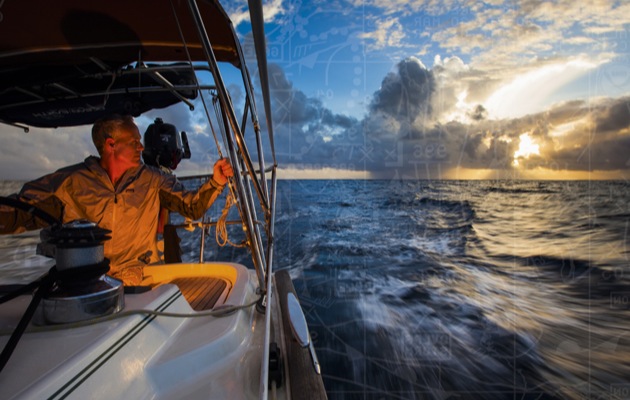
Offshore weather planning: the options for receiving weather data at sea
When I skippered a yacht in the first Atlantic Rally for Cruisers (ARC) 30 years ago the weather planning information…
I equate the amount of noise on board to be in inverse proportion to the sum of knowledge. I do find that being on a boat with a skipper who stands behind the wheel shouting at the crew is not much fun and, if asked back, will generally decline the invitation.
There is something great about helming your own boat in a race, but if you are also trying to run all aspects of the boat from behind the helm you can get stressed. Then your helming declines as your concentration jumps from one task to another.
It is much better to have a crew boss or mate who controls the running of the boat, managing manoeuvring instructions and allowing the skipper to concentrate on helming. The alternative is for the skipper to manage the running of the boat and have a different helmsman. Large racing boats will often have separate helmsman, navigator and tactician, with the skipper in overall control.

This is another important lesson: delegation and training. There are many decisions taken on board that really do not need to involve the skipper once a general plan has been made.
For example, does the skipper really need to micromanage all the food that is bought for a transatlantic passage ? By delegating a large proportion of the running of the yacht to others it does free up the skipper to focus attention on the more important issues.
5 top tips for a good skipper
- Communicate clearly.
- Stay calm and confident.
- Promote fairness and listen to your crew (treat them with respect).
- Be cheerfully available at all times, whenever called.
- Act decisively.
I skippered a yacht in the BT Global Challenge where everyone on board had an area of responsibility, although things would be discussed. We split things up in a number of ways: for example, one crewmember, who worked in the oil industry, was the safety officer.
It was their responsibility to make sure all our safety equipment was in working order and serviced. They would also give a safety briefing to new crewmembers as to where equipment was stowed and how it should be used.
By giving responsibility to a crewmember, it relieves some of the skipper’s duties, but more importantly it helps crew quickly become part of the team. During the last ARC one of our crew arrived only a couple of days before the start – immediately he set to work on a jobs list and his comment afterwards was that it allowed him to familiarise himself with the boat and made him feel part of the crew.
Part of the skipper’s job is to explain and teach; it is pointless to get angry at a crewmember for doing something wrong if they have never been shown how to do it right.
Although it is often easier to do something yourself than explain how it should be done, it is important for other members of the crew to be able to tackle particular jobs.
Then if something needs doing in a stressful situation they will not be doing it for the first time under pressure, when something is very likely to go wrong.
Some crew may not be very experienced, but all should be willing to learn – with a bit of help and encouragement they will soon become efficient crewmembers, whether for a day’s sail, or an ocean passage . I find it easier to hand over the helm when showing what I would like done rather than trying to do it from a fixed place with divided concentration.
You only have to watch manoeuvres in a marina for a short time to spot a boat getting into difficulties and a significant amount of shouting and swearing starts. The skipper has lost control of the boat and will shortly lose control of the crew, then will spend a long time contemplating the wonders of single-handed sailing.
It is important to get away from the blame culture. If something is done wrong a quiet word will be more effective than balling somebody out; most people are upset when they do something wrong and I see no point in making it worst by public humiliation.

As a skipper it is important always to be available and never to be upset or grumpy at being called, even if it turns out not to be necessary. I recall one dark night in the English Channel when the crew on watch were discussing a ship.
One was quite certain that we were passing behind the ship, the other equally certain we were passing in front. On hearing this I got up to find that there was a ship close by and where one crew was seeing the running lights, the second was seeing lights at the stern and in front of us was a wall of steel! A (very) quick gybe and all was well.
I will never ask anyone to do something that I would not be prepared to do myself; whether changing a sail on the foredeck at night in a gale, or climbing the mast . While younger, fitter crewmembers might be better suited to the task, is it safe or right for them to do it? I look at the task and ask myself would I do it? If the answer is yes I do it myself or, if the volunteer will do it better, then I may be persuaded.
If however the answer is no, then we must find another solution. As I get older I may have to change my thinking as it gets more difficult to do the tougher physical activities.

Safety first – Angus Fuller
- Safety, safety, safety – make this a priority, not just on deck, but below: in the galley, moving in the interior, even in the heads.
- Wear lifejackets at night. Always.
- Respect the environment, particularly with a view to pollution.
- Remember you can’t do everything so delegate/rely on crew wherever possible.
- Carry out drills before departure, ensure all crew understand their roles during any scenario. At halfway, have a chat, table top drill or even a full drill in order to keep the crew refreshed.
- Pay attention to detail. This applies to pretty much everything, from maintenance of systems to presentation of the yacht to monitoring the weather .
- Communicate the plan to the crew: a daily briefing on weather (lunch time is ideal), route, any change in this owing to weather and why. At sunset, issue night orders for changes in wind speed and direction.
- Ensure clear parameters are set with the crew so they know when to wake the skipper in the event of changes in weather, shipping, landfall, etc.
- Never be afraid to brief the crew before a manoeuvre – and a debrief after a manoeuvre can be a very useful process for both the skipper and crew.
- Reef when you first think about it – invariably performance doesn’t suffer that much (and is often improved) if it’s a marginal decision.
- Aim to have the yacht arrive in the same condition, or preferably better, than when you departed. By definition this means you will be looking after the yacht properly during the passage.
- Know the cruising area or stretch of water being transited. If you don’t, then heavily research it.
- Exercise seamanship to the very best of your ability at all times and instil this in your watch leaders from the outset.
- Assemble a crew who aren’t just good sailors, but compatible personalities too.
Fairness is all
You also need to be fair, whether this means splitting the watch times so all the crew are happy, or balancing meals and meal preparation. Fairness is important and it is easy to fall into routines where one person feels unfairly treated.
At the start of a long ocean passage on my boat one crewmember, who did not suffer from seasickness , ended up making drinks and snacks for everyone; this became the norm and after a few days they became unhappy because they were doing more than their fair share of galley duties.
Small things like that can quickly become big on a boat at sea. Another time I had a habit of always running the generator and watermaker at the same time of day; this became annoying for the off-watch as it made sleep more difficult, something I was not aware of at first as it did not affect me. Having a time where everyone comes together, maybe meal times, can be a good time to address small issues before they get bigger.

Part of a skipper’s responsibility to the crew is safety and this is not only their direct personal safety, but also the maintenance of the boat and equipment.
I find it useful to have plenty of discussions about what could go wrong and the equipment we have on board and how it can be used.
Man overboard practices and fire drills should be done as a matter of course, but it not always that easy, particularly on short voyages. However, a safety briefing should be done for all new crewmembers even if they are only on board for a daysail.
What is perhaps not so comfortable for skippers is having to resolve interpersonal problems. This may just involve switching the watch system around, or may mean you have to ask someone to leave: not a nice job for anyone to have to do, but a happy boat tends to be a safer boat – and faster if racing.
One problem that can become an issue on races and rallies is how hard the boat will be pushed. What might be pushing hard for a racing person will be different for a cruiser and it is easy for people to become apprehensive (or plain scared) when out of their comfort zone.
Then there is the issue of money on cost sharing or paying your way boats. It is important before committing to sail together to have a firm agreement on what is expected on both sides.
It should also be clear who is paying travel costs as, although a boat may be legally responsible for repatriating crew, most non-commercial yachts expect crewmembers to be responsible for their own travel.
Who’s the leader?
There can be times when a crewmember may be as experienced (or maybe more so) than the skipper. This can cause tension and insecurity in the skipper’s position.
For a day or so it should not be a problem, but on a longer passage a feeling of being undermined can set in. As a skipper it is useful to be open to ideas, they may be better than yours as everyone’s experiences are different, but at the end of the day the yacht is your responsibility.
Trying to get a balance between listening to, but being able to reject ideas may not be easy and can be a difficulty when taking on crew that you may not have sailed with in the past.
I have seen this a number of times in the ARC where a boat has taken on an experienced crewmember, but it has blurred the lines as to who is the skipper and caused tension.
I do find choosing a crew difficult; it does partly depend on what I am intending to do. For a long passage an enthusiastic, positive person will make up for any shortcomings in experience.
We all have to live together so getting on is important, along with a willingness to share all tasks. As we are sharing our boat, which is our pride and joy, respecting and looking after it should be a priority.
Damage will occur and owners/skippers need to be prepared for this, but a carelessly dropped saucepan on the newly varnished cabin sole is avoidable and immensely irritating.
My ultimate test is: would I be happy working on the foredeck in bad conditions with this person? A definite no-no for me is laziness, particularly crew not willing to muck in with the bad bits as well as the good.

Speak to your crew – Tom Cunliffe
- Communication is key. No ‘mushroom management‘.
- Listen/watch, crew and boat.
- Remain cheerful, or at least positive, even when woken during your watch below.
- Above all, make sure all hands are running on the same ‘motivation fuel tank‘. If they all want the same thing, you are three-quarters of the way to a happy ship.
- By all means communicate legitimate concerns, but never irrational anxieties.
- Sit down before you start, agree ship’s articles and all sign them. Everyone must know their duties. If money is involved, details of this must also be inscribed, as well as a probable route with contingencies. Then, when things turn to the bad and aggro starts, you get out the articles and read them together. End of problem (given to me by one crew of Sandefjord , which sailed in the 1950s from South Africa).
Judging competence
Choosing a skipper also has its pitfalls. Experience and competence is difficult to judge on first meeting and going for a sail together is important. Personally I would avoid a shouter at all costs.
Competence levels are more difficult to measure, but a well-run, tidy boat is a good indicator while one with a long jobs list could indicate that things have slipped.
A quick look in the bilges and at the engine can give a clue as to maintenance and a check on lifejackets will show thoughts on safety. I recently did a safety check on a yacht for an event to find that the owners had brand new top of the range lifejackets for themselves while the crew ones were old, without lights or sprayhoods. I am not sure I would have enjoyed sailing on that boat!
Skippering a yacht well is not an easy task, there are so many aspects to the job. It becomes easier with experience and there is no substitute for miles sailed. Good sailors are not necessarily great skippers, but good skippers must also be good sailors.
I have a great deal of respect for the late Sir Peter Blake and, although I never had the privilege to sail with him, I sailed against him on two Whitbread Round the World races . He always found time to have a friendly word and generated great crew loyalty on board his boats.

Be the best leader you can – Jim Thom
- It’s becoming progressively easier to access sophisticated weather information. A good skipper will prepare the yacht for the actual weather, not the forecast he/she’d like.
- Monitor the yacht’s position and the conditions, high and low-tech, from radar/chart plotter to barometer. Even though electronics are increasingly failsafe, a good skipper keeps a record on paper, in the log and on a chart – even the most advanced yachts can be struck by lightning , or suffer power failure . A good skipper will also listen to their senses, and to their sixth sense. They’ll ask themselves where that low swell is coming from or why the seas have become steeper. Shallow reefs may tint the underside of clouds green or blue, and the sound of breakers will hopefully never come as a surprise. Rain has a distinctive smell at sea, as does land and your nose will tell you when ice is near.
- A good skipper will look for the ‘horseshoe nail’ – lost from the messenger’s horse, it triggered the chain of events that lost a kingdom. Regular checks of the yacht, including sails and rig, deck fittings, bilges, steering, engine and machinery, will help the skipper and crew stay ahead of the law of entropy, and out of the incident pit.
- Create a flexible structure without being overly prescriptive. Agree standard practice with the crew: how lines should be made off on a cleat; how to use and make fast on a winch, how to shake out a reef, how to make engine checks, etc. Establishing basic procedures avoids surprises and allows crew to develop skills and think further. A good skipper will prevent boredom and apathy by agreeing daily routine maintenance tasks and helping to develop projects that improve the yacht and teach useful skills on board.
- A good skipper’s best attributes are not related to technical expertise, but to self management, leadership and communication skills. If you develop a set of team and personal goals then a common understanding will prevent many hot spots from forming.
- A good skipper will try to manage their own emotions, knowing the effect they can have on morale. They’ll keep an eye on each member of crew and on the mood of the team, finding reasons to celebrate together – crossing the line, halfway point, a birthday, a good day’s run, or just a great day at sea.
About the authors
Chris Tibbs is a meteorology and weather router, as well as a professional sailor and navigator, forecasting for Olympic teams and the ARC rally.
Angus Fuller is a professional skipper, MCA Chief Mate 3000GT (yachts), who has made 29 transatlantic crossings, 21 as skipper, and one transpacific crossing as skipper, plus one circumnavigation upwind and sailed over 300,000 miles.
Jim Thom has been skipper of a Robert Clarke sail training yacht, a Baltic trader, a Clipper Round the World Race yacht and for four years was captain of the Fife design Kentra . From 2003-2012 he was captain of the 125ft Fife 19 Metre Mariquita with his wife, Lucy, as mate.
Tom Cunliffe is a Yachtmaster Instructor Examiner, author of numerous books on seamanship and is a contributor to Yachting World , responsible for our ‘Great Seamanship’ features.
- Exploring the Role of a Skipper in Boating and Sailing
The term " skipper " holds a prominent place in the world of boating and sailing, representing the individual tasked with the operation, navigation, and overall management of a vessel. Whether it's a small boat, a luxurious yacht, or a sailing dinghy, the skipper plays a crucial role in ensuring the safety and smooth functioning of the maritime journey.
Boat Skipper and Yacht Skipper:
The title "boat skipper" is a broad term encompassing individuals in charge of various types of boats , while a "yacht skipper" specifically denotes someone overseeing the operations of a yacht. Both positions require a comprehensive understanding of navigation, safety protocols, and the ability to make informed decisions while at sea.
Charter Skipper:
In the realm of chartering, where individuals or groups rent boats for recreational purposes, a charter skipper may be hired. This professional takes the helm for those who may lack the necessary expertise, ensuring a safe and enjoyable experience for all on board.
Sailing Skipper and Skipper 12 Sailing Dinghy:
A "sailing skipper" is someone well-versed in the intricacies of sailing, adept at harnessing the power of the wind to navigate the waters effectively. Meanwhile, a "Skipper 12" refers to a specific type of sailing dinghy , a smaller boat designed for sailing enthusiasts.
Sailing a Yacht for the First Time:
For those embarking on their maiden voyage aboard a yacht, having an experienced skipper on board is often recommended. Navigating a yacht for the first time can be a complex endeavor, and the guidance of a seasoned skipper ensures a smoother introduction to this maritime adventure.
Hiring a Skipper:
Individuals who own boats but lack the necessary skills or time to operate them may opt to hire a skipper. This allows them to enjoy the pleasures of boating without the responsibilities and challenges associated with captaining the vessel.
Read our top notch articles on topics such as sailing, sailing tips and destinations in our Magazine.
How to Become a Yacht/Boat Skipper:
Aspiring skippers often undergo training and certification processes to acquire the skills and knowledge needed for the role. This may involve learning about navigation, safety procedures, and gaining hands-on experience in boat handling.
Skippers Choice Marine Supply:
In the marine industry, businesses like "Skippers Choice Marine Supply" cater to the needs of skippers and boat enthusiasts, providing a range of products and services to enhance the boating experience.
In conclusion, the term "skipper" encompasses a diverse range of roles in the maritime world, from steering a small boat to captaining a luxurious yacht. Whether hired for a charter, sought for guidance in sailing, or responsible for the day-to-day operation of a vessel, the skipper is a central figure in the world of boating and sailing, ensuring safe and enjoyable journeys on the water.
So what are you waiting for? Take a look at our range of charter boats and head to some of our favourite
sailing destinations .
Faire de la mer son métier est le rêve de beaucoup de passionnés ! Pourtant, on ne s’improvise pas skipper professionnel. Il faut même pour cela devenir Capitaine. Faisons le point et voyons les étapes pour devenir skipper!
1 – Quels sont les diplômes et brevets nécessaires pour devenir skipper 2 – Où se former au métier de skipper? 3 – Les responsabilités du skipper et du client
1. Quels sont les diplômes et brevets nécessaires pour devenir skipper
Pour pouvoir exercer la fonction de Skipper professionnel, c’est à dire, assurer un commandement de manière rétribuée, il faut y compris en plaisance, être titulaire d’un brevet de Capitaine . C’est du moins le cas à bord d’un bateau français. Selon la réglementation de chaque pays, il existe d’autres titres. Le Yachtmaster par exemple, permet d’assumer cette fonction à bord de bateaux sous pavillon britannique.
La législation qui s’applique ne dépend pas d’une localisation géographique, mais du pavillon du bateau sur lequel le skipper exerce. A bord d’un bateau français, il faut donc être titulaire d’un Brevet de Capitaine qui permet de commander des bateaux de 200, 500, 3000 UMS et au-delà (UMS signifie Universal Measurement System, et remplace l’ancienne jauge brute en tonneaux). Pour les prérogatives de brevet, on admet les correspondances suivantes :
- 200 UMS – 100 tonneaux
- 500 UMS – 200 tonneaux
- 3000 UMS – 1600 tonneaux
La nuance entre diplôme et brevet est importante, surtout dans les métiers de la mer pour lesquels un apprentissage sur les bancs de l’école ne suffit pas. La formation (environ, 500 heures pour un Capitaine 200, hors spécialisation), est sanctionnée par un examen. Pour se prévaloir du Brevet, le nouveau titulaire du diplôme devra ensuite valider ses compétences au cours de 12 mois de navigation. En plus de cela, le skipper en devenir devra obtenir les qualifications complémentaires en certifiant des modules, selon qu’il navigue à la voile, au large, ou qu’il transporte des passagers . Le brevet de Capitaine doit être re-validé tous les 5 ans via un recyclage et en justifiant de navigations professionnelles effectives.
2. Où se former au métier de skipper?
Les lycées professionnels maritimes et centres de formation dédiés proposent d’acquérir le tronc commun de la qualification . On pourra ensuite se tourner vers des organismes comme les Centre voile Macif, qui dispensent des formations au « Module 5 – Capitaine 200 voile ». Ce module est accessibles si l’on remplit les conditions suivantes:
- Etre titulaires d’un brevet de Capitaine
- Avoir 20 ans révolu
- Etre déclaré apte physiquement à la navigation (par un médecin du service de santé des gens de la mer)
A l’issue de la formation, c’est la Direction inter-régionale de la Mer qui délivre diplômes et brevets.
Les prérogatives du « Capitaine 200 » permettent de réaliser du transport de marchandise ou de convoyer un bateau. Elles permettent également le transport de personnes, que ce soit en charter ou comme skipper professionnel embarqué sur un bateau tiers. Par contre, pour pratiquer l’école de croisière, le coaching plaisance ou toute activité de formation, il faut passer en plus, le brevet d’état BPJEPS (Brevet professionnel de la jeunesse, de l’éducation populaire et du sport).
Le skipper qui voudrait assumer légalement ce double rôle de formateur et de Capitaine, devra donc être titulaire de ces 2 brevets.
3. Les responsabilités du skipper et du client
En temps que client, on fait appel à un skipper professionnel pour qu’il prenne la responsabilité du bateau (et de la sécurité de son éventuel équipage). La charge de « Chef de bord » n’est jamais anodine, même pour un skipper plaisancier. Elle est bien plus cruciale encore pour qui est considéré comme un professionnel.
Imaginons un instant les suites d’une fortune de mer et la réaction d’un tribunal ou d’un assureur s’il apparaissait que le « skipper expérimenté » n’était pas titulaire de tous les brevets requis… ce qui bien sûr implique qu’il n’était pas non plus couvert par une assurance responsabilité civile professionnelle valide ! Au moment de recruter un skipper, assurez-vous qu’il dispose bien des brevets voulus et qu’il est couvert par une assurance professionnelle pour son activité.
La mer demeure un bel espace de liberté, mais cela n’en fait pas une zone où tout serait toléré. Un plaisancier, même convenable ne peut pas s’instituer professionnel. Avec l’expérience, un pratiquant de la plaisance devient progressivement skipper à son propre bord ou sur les bateaux qu’il loue ou emprunte. Il peut devenir un excellent marin et éventuellement faire profiter amis et connaissances de son savoir et du fruit de son expérience. Cependant, il reste (sans dédain aucun), un plaisancier amateur (littéralement une personne qui aime prendre son plaisir en allant sur l’eau).
Laissons aux professionnels dûment formés et titulaires des certifications nécessaires, le soin d’exercer ce métier. Même si notre pratique des bateaux et de la navigation nous procure le sentiment de savoir,l’humilité est le module n° 1 de la formation de marin !
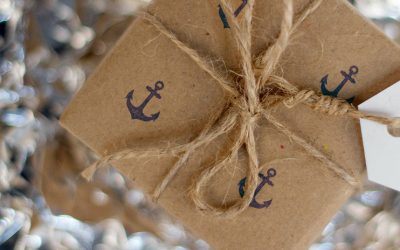
Submit a Comment Annuler la réponse
Votre adresse e-mail ne sera pas publiée. Les champs obligatoires sont indiqués avec *
Submit Comment
Yachting Monthly
- Digital edition

Skippering a boat for the first time: steps to success
- Katy Stickland
- September 18, 2020
Skippering a boat for the first time needn't be daunting, as long as you prepare. Matthew Diggle reveals how to make a success of taking charge

New skippers don't need to be at the helm, and giving crew tasks will keep them happy and motivated. Credit: Matthew Diggle
It’s a pity that skippering a boat for the first time can seem so intimidating.
Not much beats the feeling of being in charge of a yacht, deciding where to go, and taking the crew on an adventure.
And there’s a real sense of accomplishment at the end when you bring the crew and boat home safely.
For anyone who is new to sailing or who crews for someone else, following the RYA training path and becoming a Day Skipper is an excellent way of taking your sailing to the next level.

As you gain confidence you can start to charter and explore new cruising grounds. Credit: Matthew Diggle
It shows that you understand the fundamentals and can take on more responsibility when other people feel daunted by the thought of being responsible for a boat and its crew.
With a bit of preparation and planning, skippering is well within most people’s capabilities, especially if you don’t bite off more than you can chew for the first few trips.
Preparation is the key. Simply put, you have to decide where to go, who to go with, and how to get there.
I thought it would be useful to share the lessons I’ve learned when I first started skippering for those considering taking their first steps.
Skippering a crew
Sailing boats are not particularly spacious down below so I generally don’t try to fill every berth onboard.
Even so, it is vital that the crew can get along together and this means that you have to choose who to invite carefully.
This is often a bit of a juggling act, trying to coordinate different people and boat availability, so in the end you’re unlikely to be able to please everyone.
Just offer some reasonable options and hope for the best.

Careful crew selection will contribute to a happy trip for all. Credit: Matthew Diggle
It is also important that people know what to expect, so they don’t sign up thinking that they’ll have a spacious cabin with en-suite facilities when they’ll actually get a space in the shared forepeak in a boat with a single heads.
Similarly, being clear about the nature of the trip – that this is your first time skippering – will avoid adrenaline-junkies being frustrated by a gentle coastal cruise, or nervous novices being scared rigid during an offshore passage.
When skippering the first few times, it is well worth inviting an experienced and knowledgeable sailor to act as first mate.
But you should choose them wisely as you don’t want anyone who will take over or boss you about if you’re a bit slow working something out, or don’t do things in exactly the way they would.
What you really need is a calm and supportive person who will give you the space to experiment, have a quiet word in your ear if they are concerned that something is wrong, but who is capable of taking over if you are incapacitated in any way.
After all, you have to trust them to come back to pick you up if you have the misfortune to fall in, and you must be confident that they could get the boat and crew to somewhere safe if needed.

A competent first mate will make your life as skipper much less stressful. Credit: Matthew Diggle
In return for the safety and security they provide, you should listen carefully to what they say and pay attention to their skippering advice.
You should also make it clear to the rest of the crew who the first mate is and that they may have to assume command.
It is also sensible to ensure that not all the crew are novices.
Coaching new crew is time-consuming, and sometimes time is in short supply.
It also takes up mental space while your head needs to be concentrating on skippering the boat.
This is especially true when coming into a berth.
Having one or two people capable of handling the fenders and warps will avoid the sort of situation I got into on one of my trips where I didn’t notice the crew were busy trying to remember how to tie the fenders so that when I got the mooring slightly wrong, they didn’t see we were drifting towards another boat and I ended up shouting.
In the end, someone from the other boat pushed us clear, but it definitely wasn’t my finest hour as skipper.

With the crew briefed and kitted up, you’re ready to sail. Credit: Matthew Diggle
I usually send round practical information about arrangements, including advice about what to pack (and what to pack it in), about sharing cabins, what we will do about food, and also some reassuring words about the safety equipment on board.
More experienced crew members will probably already be aware of some or all of these things, but it is a good idea for everyone to have the same information so that there is a common starting point.
But I usually throw an extra sleeping bag in the car and make sure I check everyone’s equipped before setting off, just in case.
Organising a planning meeting, arranging to share lifts to the boat, or making some other excuse to get people together beforehand is a good idea.
The better people know each other, the more smoothly the trip is likely to run.
Encourage people to use email or social media to communicate, but make sure you ask for permission before sharing email addresses or phone numbers.
Keep your first skippering trip in familiar waters
Although it might be tempting to go exploring, you will probably have enough to think about without having to navigate around somewhere entirely new.
Indeed, the Day Skipper qualification says that you are only competent in ‘familiar areas’, but even here you might find yourself sailing from a marina or harbour you’ve not visited before.
If this is the case then do some research to get an idea of what to expect.

Sailing in familiar waters will let you focus on skippering rather than navigating new hazards. Credit: Matthew Diggle
When you pick the boat up, take the opportunity to chat with the charterer and people on other boats nearby to get some local knowledge.
They’re likely to regale you with anecdotes about other visitors who have come to grief in one way or another.
Don’t let these tales put you off, just listen carefully and then you won’t feature in their next story.
Unless you have a particularly trusting boat-owning friend you will probably also need to use your Day Skipper qualification to charter a yacht.
Again, you are better settling for something which is not too adventurous or enormous.
This is not the time to have to deal with something much bigger than you’re used to or with extra sails, rigging, or masts that you’re not accustomed to.
The cost of the trip
One of the first practical aspects of arranging a trip is to sort out the finance.
You will need to cover the cost of the boat, together with mooring and fuel, and then decide whether to include food, meals out, and drinks.
I find that the simplest option is to share all the costs equally, and the first step is to prepare a rough budget so people have an idea of how much the trip is going to cost.
It’s generally better to over-estimate and then give people a small refund, rather than to try to collect an extra few quid from everyone at the end of the trip if, for example, there was a lack of wind and so the fuel costs more than you expected.
You also need to consider what to do about the cost of any damage.
Continues below…

Masterclass: How to lead a happy crew
Toby Heppell gets advice on skippering with friends and family from Pete Goss, Dee Caffari and Conrad Humphreys

Competent Crew: On course for cruising harmony
Katy Stickland joined an RYA Competent Crew course to find out why instruction can make life as a sailing couple…

Night sailing tips for first timers
Cruising after dark doesn't need to be stressful. Toby Heppell shares his tops tips for night sailing

How to raft up safely and securely
James Stevens looks at the seamanship and etiquette needed to raft up and identifies the benefits and pitfalls of coming…
Do you trust everyone to stump up or would it be easier to include insurance in the basic cost of the trip?
You may find that potential crew are rather more enthusiastic about coming on a sailing trip in theory than they are in practice.
Asking them to pay a deposit when booking and the rest closer to departure is a good way of gaining commitment and preventing them from cancelling at the last minute.
Finally, record all expenses and payments so that everyone can check the figures and see that things have been divided up fairly.
This should help prevent disagreements.
There are a number of apps to make both the sums and payment straightforward.

Safety procedures
You are responsible for everyone’s safety and you should take this seriously, but in fact this usually isn’t too onerous if you are sensible and careful.
If you charter a coded vessel in the UK then it will come with a full set of safety equipment appropriate for its cruising limits.
All you will need to do is find where everything is stowed and familiarise yourself with specific details of the lifejackets, jackstays, and so on when you pick the boat up.
Then make sure the crew know how to use it, and do so at the appropriate time.

Brief the crew about safety equipment on board. Credit: Graham Snook/Yachting Monthly
I ask for an emergency contact number for each crew member, and in return let them have details of a shore contact.
I also ask crew members, in confidence, about any medical conditions that might affect them on the trip.
If someone falls ill you don’t want to be scrabbling about trying to find out if they have an inhaler or medication that could help.
Similarly, if you have to hand them over to an ambulance, the medics are likely to ask if they are allergic to common medicines.
There’s no need to share this with anyone beforehand, but I like to leave a copy with the shore contact and let the first mate know where the info is on the boat, just in case it were to be needed.
Catering for your crew
The first step when planning what to eat onboard is to check everyone’s allergies, likes, and dislikes.
With a modicum of thought it is quite feasible to cater for vegetarian, gluten-free, and other diets without making things too complicated.
There’s certainly no excuse for only offering a vegetarian crew member cheese sandwiches for every meal.

Good food on board boosts morale and can be a highlight of the trip. Credit: Matthew Diggle
On short, coastal trips I usually just cater for breakfast and lunch, and aim to eat ashore most evenings.
However, I like to have a simple ‘emergency meal’ on board, such as pasta and a jar of sauce, to make sure we can have a hot meal even if we end up at anchor rather than in a marina as planned.
I find that snacks, fruit, and biscuits are always welcome, and distributing a few chocolate bars can really lift the spirits during a hard slog or a long beat to windward.
Navigating your first trip
Once you’ve selected your crew, booked a boat, and decided on a cruising-ground, it’s time to start on the detailed preparations.
It is worth putting some effort into making the actual trip as straightforward and stress-free as possible.
Skippering means you’ll have lots to think about, so take any opportunity to ‘cheat’ by preparing things beforehand.
Your RYA training will have taught you how to work out tidal depths from the tables in an almanac, but why not print out some tidal curves for the time you’re away, in particular for any marinas you’re thinking of visiting?
Planning and navigation software packages can do this well in advance, and you can find information for the next few days online.
After all, you can still do things the traditional way if you want to impress your crew (or just to prove to yourself that you remember how) but if things are going wrong or time is short then having ‘one you prepared earlier’ can be a literal life-saver.
Weather forecasts
Similarly, you can download weather maps and forecasts for the next few days before setting off.
Obviously, things will change so you will have to re-check the forecast every day, but having a feel for the general weather pattern should help you decide whether to turn left or right when you leave the marina on the first day.
Unless you’re feeling particularly masochistic or determined to experience ‘life at an angle’, it’s not very clever to spend the first half of a trip on a hard beat only to find the weather system passes and you spend the second half on a hard beat back again, when setting off in the other direction initially would have resulted in a pleasant cruise, both ways.

Plan a couple of route options in case the weather changes. Credit: Matthew Diggle
Finally, get hold of any information you can about places you might visit or that you might want to have in reserve as bolt-holes.
Printing out some sketch-maps and pilotage notes can help you stay up on deck rather than spending time below checking the charts.
Share your plan with the crew, but make sure everyone knows that you might have to revise it due to things like a change in the weather.
Picking up the boat
Try to pick up the boat before the crew arrives.
Taking the inventory and doing the handover is much easier if the boat is not full of people and all their kit.
Then put the kettle on ready to give the crew a warm welcome.
If you’re parking a car at the marina then it is sensible to leave as much stuff in it as possible, particularly bulky bags and rucksacks.
A set of dry going-home clothes (and shoes) together with a dry towel and a bag for damp kit is a good idea if you think you might arrive back cold and wet on the last day – and if you’re sailing in the UK that is pretty likely!
Briefing your crew
Brief the crew before setting off.
Keep this simple and to the point; you don’t want to worry people, but it is important to point out the key things.
I usually include:
- Lifejackets and tethers
- Fire prevention and extinguishers
- Galley and gas safety
- First-aid kit
- How to turn off autopilot
- Using winches safely
- Starting the engine
- VHF radio and sending a DSC mayday
- Using the heads
Give a briefing that is appropriate for the crew, so you might have to have a couple of different briefings or even give one to the experienced people and get them to brief it on.
It’s a good idea to show people how to use pontoon cleats before setting off, rather than trying to explain this at the end of the day.
Other things about sailing the boat can be introduced gradually over the course of the day.
Consider having simple standing orders to make it clear what’s expected of the crew.
These should include rules about wearing lifejackets and tethers, such as ‘whenever you want to and whenever I tell you to’.
Remember to let your shore contact know when you set off, and also when (and where) you arrive.
Using the RYA SafeTRX app is a great way of ensuring that they are alerted if you’re overdue and it can also produce records of the trip that the crew may find interesting, but do keep your mobile charged during the trip or you might not be able to close the trip when you arrive, leading to possible confusion or concern.
When skippering, try to keep everyone involved in running the boat.
In challenging conditions it may be prudent to limit some tasks to more confident and experienced crew, but don’t let them dominate and hog the helm or other exciting jobs the rest of the time; make sure that everyone gets a turn.
Remember to be positive about everyone’s efforts, patient if you have to explain things, and gentle if you have to correct someone.
After all, they’re here to enjoy themselves and a harsh word may put someone off ever sailing with you again.

If you can, go with the wind when it blows up. Your crew will thank you. Credit: Matthew Diggle
Keep an eye on the crew so you’re aware if anyone is starting to suffer from seasickness or is getting cold, and deal with it before it gets too bad.
I find that putting seasick crew on the helm or persuading them to lie on a bunk with their eyes closed usually helps.
Hot drinks and an offer to pass up warmer clothes will help a cold crew member who is, perhaps, avoiding going below decks.
You are in charge of the boat and part of skippering is to ensure the crew have confidence in you.
So, remain calm at all times, or at least appear calm while you work out what to do next.
Don’t dither, it’s your responsibility when skippering to make decisions and when faced with a choice almost the worst thing you can do is nothing.
On the other hand, don’t be afraid of changing your plans if conditions change.
Don’t sail on regardless, hoping that things will turn out alright; shorten the trip if the crew are struggling, change the destination if the wind shifts.
Final words on first time skippering

Matthew Diggle started sailing after signing up for the 2011-12 Clipper Race. Since then he’s cruised in UK waters and off the Italian and Croatian coast. Credit: Matthew Diggle
It’s always worth having a debrief at the end of the day and of the trip to reflect on what people enjoyed, learned or didn’t understand, and hopefully this will help ensure everyone leaves happy.
As a skipper you are allowed to have fun too, but it is different to going on a trip that someone else has organised.
It may seem hard work and a little daunting to start with, but you’ll get into your stride after only a few trips.
I find it immensely satisfying when crew tell me that they’ve enjoyed a trip, that they’ve learned new skills, and, most of all, that they want to come back.
So why not start planning a trip and gathering a crew now?
First time skippering checklist
- Select crew with similar expectations
- Mix of abilities and experienced first mate
- Set expectations of boat and plans early
- Email joining instructions ahead of time
- Take a spare sleeping bag and waterproofs
- Meet up before the trip if possible
- Share shore contact details for the boat and get emergency contact for each crew
Cruising grounds
- Stick to familiar areas for first-time skippering
- Research new places you want to visit
- Get some local knowledge from charter company or marina
- Charter in an area you know
- Opt for a modest-sized boat that will be easy to sail
- Stick to white sails and don’t worry about spinnakers
- Arrive before the crew to settle in
- Decide what costs you will cover, and what you will split
- Be clear with your crew about how much it will cost
- Include a margin for extra fuel, and refund if possible
- Ask for a deposit so crew commit
- Check the boat has all the necessary safety equipment and where it is
- Brief your crew on safety gear and procedures, above and below decks
- Check if crew are on medication or have medical requirements
- Check and fit lifejackets
- Establish standing orders of when to wear lifejackets, who is in charge, and who first mate is
- Check for crew allergies, likes and dislikes
- Decide if you’re cooking on board or eating ashore
- Have enough for breakfasts, lunches and a back-up meal
- Take plenty of snacks, tea, coffee and milk
- Print out tide times, tidal curves and weather forecasts beforehand
- Plan a couple of route options to cover different weather scenarios
- Aim to make the first sail an easy one
- Prepare pilotage for new places you plan to visit
- Let shore contact know plans/use RYA SafeTRX app
- Share and rotate roles among crew
- Look out for bored, cold or seasick crew
- Distribute snacks and drinks regularly
- Keep an eye on the big picture – passage plan, weather, navigation and safety
- Teach crew if you have time, but don’t be distracted
- Discuss plans, but you make the final decisions
- Debrief at the end of the day and of the trip
For all the latest from the sailing world, follow our social media channels Facebook, Twitter and Instagram .
Have you thought about taking out a subscription to Yachting Monthly magazine?
Subscriptions are available in both print and digital editions through our official online shop Magazines Direct and all postage and delivery costs are included.
- Yachting Monthly is packed with all the information you need to help you get the most from your time on the water.
- Take your seamanship to the next level with tips, advice and skills from our expert skippers and sailors
- Impartial in-depth reviews of the latest yachts and equipment will ensure you buy the best whatever your budget
- If you are looking to cruise away with friends Yachting Monthly will give you plenty of ideas of where to sail and anchor

{{getTranslation('widget-collection-tabs-'+cart.steps[cart.activeStep].label)}}
{{getTranslation("widget-collection-labels-noItems")}}
- {{getTranslation('widget-collection-tabs-'+value.label)}}
Min. amount: {{r.minAmount}} - Cost: {{r.cost}} {{cart.shipping.currency}}